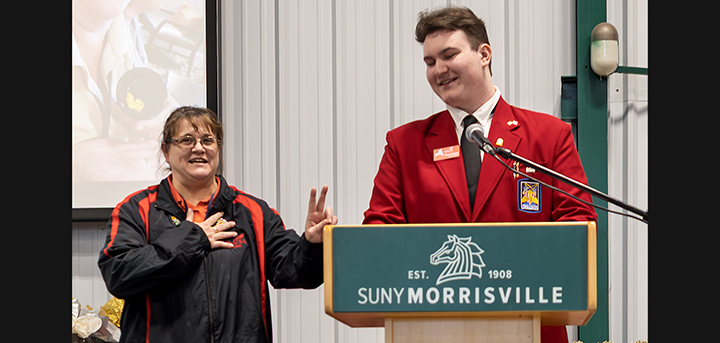Tilting At Windmills: Character Sketches, Encore
Published:
October 10th, 2025
By:
Shelly Reuben
 Author and Columnist Shelly Reuben
Author and Columnist Shelly Reuben
It is a common misconception that all fictional characters are based on an author’s friends, foes, or family. In fact, they are not. When I am writing fiction, I occasionally snatch a face, an idiosyncrasy, or an attitude from a real, living human being. But not often. And when I do, it’s usually someone I don’t know: A beautiful women asleep on a bus. A flower deliveryman missing the forefinger on his left hand.
Everyone once in a while, though, I have a near collision with an individual so rare, so interesting, so poignantly sad or sadly significant that I promise myself I will capture his essence and put it in a novel. When I was very young, very single, and very living in Manhattan, I met three people to whom I made, but never kept, that promise. Since I still owe them that little bit of immortality, I would like to tell you about them today.
The company where we worked – I’ll call it Graphic Transformations – created mail order catalogues for department stores similar to Macys and Nieman Marcus. Because the job was seasonal, it attracted employees like me who had big dreams and no money: Songwriters, actresses, artists, dancers, filmmakers, and poets. To us, Graphic Transformation was more than a job. It was a way-station. We were on our way up. Or we were on our way down. Tommy in the mail room and Helen in the main office were on their way down ... and out. But Bill would be forever stuck where he was. I’ll start with him.
BILL THE MESSENGER was short, plump, and wore faded shirts and shapeless slacks that had been washed so many times they verged on threadbare. He had flaccid, city-dweller muscles and resembled a guinea pig I had once known who only felt safe when backed into the farthest corner of his cage. Although Bill was not effeminate, he was soft in a way that suggested he would rather watch a soap opera than a football game.
Watch is the operative word here, because Bill loved to watch TV. He lived in a small, stuffy box of a room where he ate, slept, and endured his solitary existence. Because he loved television so much, one day he went to an appliance store and made a small down payment on a very large and dreadfully expensive TV. Then he signed a contract agreeing to pay it off in monthly installments ... probably for the rest of his life.
Less than a week after taking his treasure home, a junkie – may he rot in hell – broke into Bill’s apartment and stole it. Word of this calamity spread to the rest of us at Graphic Transformations the next morning. We worried about him; we grieved for him; it broke our hearts. The me who is alive today would have written out a check or given him a new TV. But the me who was alive back then was as poor as Bill. We all were.
To have so little ... to want so little ... and to be deprived of even that seemed to be a huge, metaphysical miscalculation. Over all of these years, the vision of that gentle and inconspicuous man continuing to make payments on a television set that he no longer possessed has haunted me. I suspect that it always will.
HELEN THE ART COORDINATOR. Technically, Helen was my supervisor. I collected and organized our clients’ products for photography and Helen turned the images into a catalogue. One day, for some unfathomable reason, our boss decided to send us both to Washington, D.C. to pick up the merchandise ourselves.
Helen was one of those creatures who seemed to have emerged perfectly groomed from the society pages of Town & Country magazine. She was petite and slim. Her face was an exquisite composition of angles. She had dark blue eyes, naturally long eyelashes, and raven black hair pulled away from her face like a prima ballerina. There were tiny signs of wear and tear around Helen’s eyes, but nothing that detracted from her unmistakable look of “breeding.” Except for the whisky bottles that clinked when she carried them with her everywhere. In her purse. On the plane. In her suitcase. In her briefcase during meetings with clients.
Over dinner, which Helen drank, she talked about her ex-husband, Desmond, the books that he had written, the movies that he had produced, and the home in the Caribbean where they had lived when they had been in love. John Wayne, she told me, had once visited their island, patted her on the hand, and called her “little lady.” Helen cherished that brief interlude. An innocuous memory of a lost time. A lost life. And somehow, in honor of her sorrowfully diminishing soul, I feel as though I should remember, too.
TOMMY IN THE STOCK ROOM: Tommy was long, lean, light on his feet, and so handsome he made me wish that I were an artist with a sketchpad instead of a writer with a pen. But Tommy suffered from the same malady as Helen. Within three feet, you could tell that he reeked of booze.
My contact with Tommy was as abbreviated as his career at Graphic Transformations, but it did include one memorable conversation.
“I’m a dancer,” he said.
Of course, I nodded to myself as I looked at him, his body as lyrical as a line of poetry. When he told me the name of his ex-wife, I instantly recognized her as a world-famous dancer who had co-starred with Elvis Presley in a movie and been featured in numerous TV specials. Just as quickly, I could imagine the two of them gliding across a stage. She, long-legged and lovely, with irresistible, cat-like grace. He, tall, masculine, and agile as Fred Astaire. They seemed to belong together, those two. Like side-by-side runners on a winter sleigh or a luxurious pair of kid gloves. Which must be why she had married him … despite the air of doom that cloaked him like an old raincoat. Probably, even in the glory days of his youth, Tommy had been an irredeemably hopeless, if breathtakingly beautiful, drunk.
Some of us at Graphic Transformations stumbled and fell. Some managed to curl a few fingers around our dreams. Some became wildly successful. Others gave up. But of those I worked with in the long-ago way-back-when, these are the three whose fates I dread to contemplate, but whom I can never forget.
Copyright © Shelly Reuben, 2025. Shelly Reuben’s books have been nominated for Edgar, Prometheus, and Falcon awards. For more about her writing, visit www.shellyreuben.com
Author: Shelly Reuben - More From This Author
Comments








